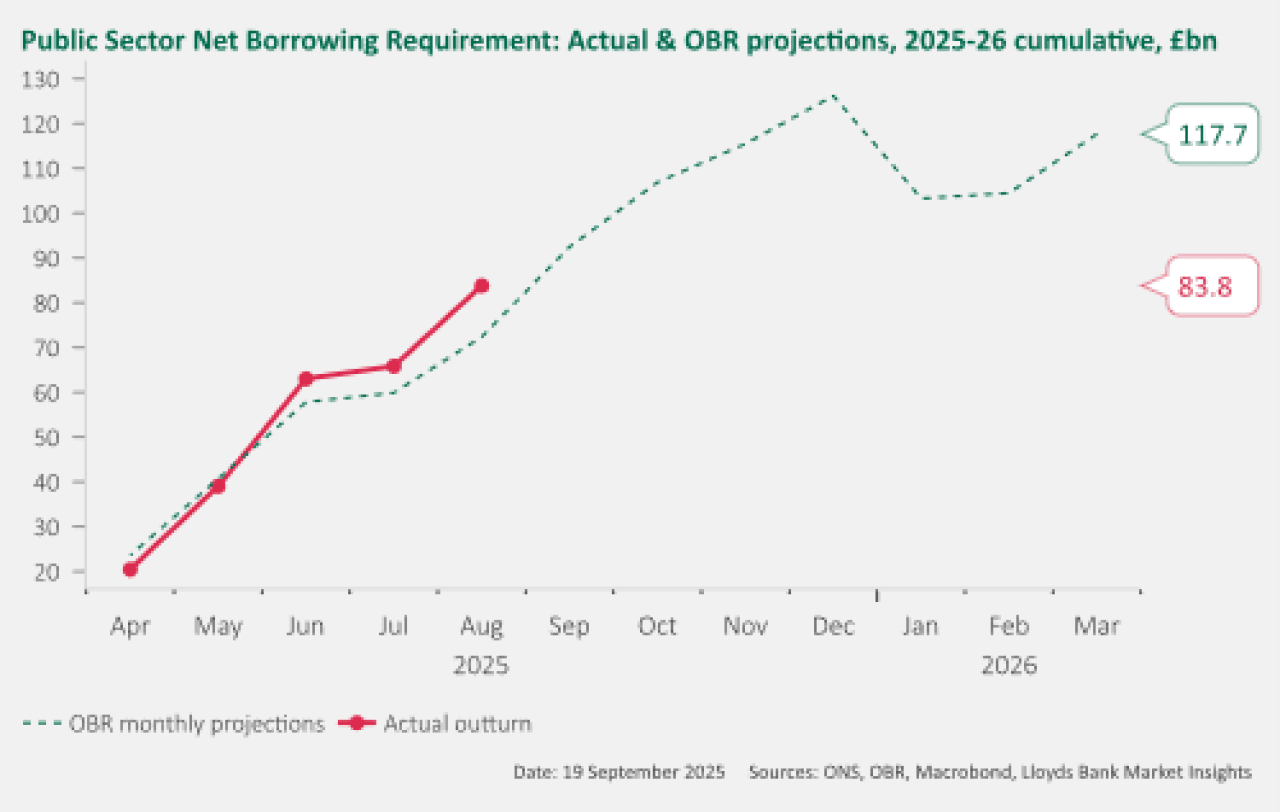
File image of Keir Starmer. Picture by Simon Dawson / No 10 Downing Street
Labour's annual conference could have been a nightmare moment for the British pound. Instead, the market is taking a 'glass half full' approach to the two-day event.
The risk for pound sterling and UK gilts was that the ruling party would lurch leftwards and signal a willingness to adopt more public spending pledges, which would guarantee greater tax rises and more borrowing in the future.
Despite some agitation for increased spending, no headline policy changes were announced.
Dean Turner, Economist, at UBS AG in London says the path forward for the government "is not going to be easy, but if they continue to deliver on their plans, then with time, the relative fiscal strengths of the UK should start to be recognised."
He adds that Chancellor Rachel Reeves could at the November budget help that process along with some bold moves on (supposedly untouchable) tax changes.
Pound Sterling Live reported Tuesday that one crucial outcome of the conference was that senior figures in the government were no longer outright rejecting the possibility of raising the 'untouchable' taxes of income tax, VAT and employee national insurance.
These are the real big earners for the government, and changes here could adequately raise the revenue required to keep the country's finances on track and calm fiscal anxieties.
But, Turner points out, that "even without these moves, national debt should stay on a path that keeps it below 100% of GDP by continuing to close the deficit. Few other countries in the focus of the bond vigilantes can boast such numbers."
So although recent months have been tortous for the pound owing to the government's financial management, it's not all bad.
Turner argues that "when the volatility subsides, we believe the pound and gilts should once again find some support from the relatively healthy fiscal picture."
Should anxieties about the budget fade, then the pound could find itself in a position to recover, particularly against its European peers.
UK-specific risks are best measured via the pound to euro exchange rate, which has been under pressure for some time and threatens to break lower. (The pound to dollar exchange rate, meanwhile, retains a relatively constructive feel at this point in the year, but this is all down to USD weakness.)
With GBP/EUR being the one to watch, we reported yesterday that Goldman Sachs thinks 1.11 is possible owing to persistent anxieties about the UK's finances and expectations that the Bank of England will cut interest rates further than markets are currently pricing.
To be sure, it's far too soon to call a recovery in the pound as businesses and households will remain tense ahead of the November 26 budget.
At the Spring Statement in March, the OBR forecasted that the Chancellor had £9.9BN headroom with which the 'fiscal rules' were being met.
The rule being that by 2029/30, public sector net financial liabilities (PSNFL) should be falling relative to GDP, and that the government meets its day-to-day funding needs with revenues, borrowing only for investment.
Developments since last year mean Reeves will need to find at least £30BN in additional revenue and savings to meet the fiscal rule.
Developments include the rise in the cost of servicing government debt, increased borrowing and a downgrade to UK productivity by the Office for Budget Responsibility, the body which marks the government's homework.
Because the government outright refuses to cut spending, plugging the gap will likely only be met by raising taxes on income taxes, VAT or national insurance.
If Labour is willing to break its promise on not raising these taxes, then the fiscal outlook will certainly stabilise and the pound could be in a position to turn higher against the euro.
However, if the government chooses to tinker around the edges with taxes on investments, pensions and business owners, then we are looking at a protracted period of uncertainty over public finances that will weigh on Sterling.
That's because these taxes simply won't fill the budget hole and risk creating unintended negative second-round effects.

